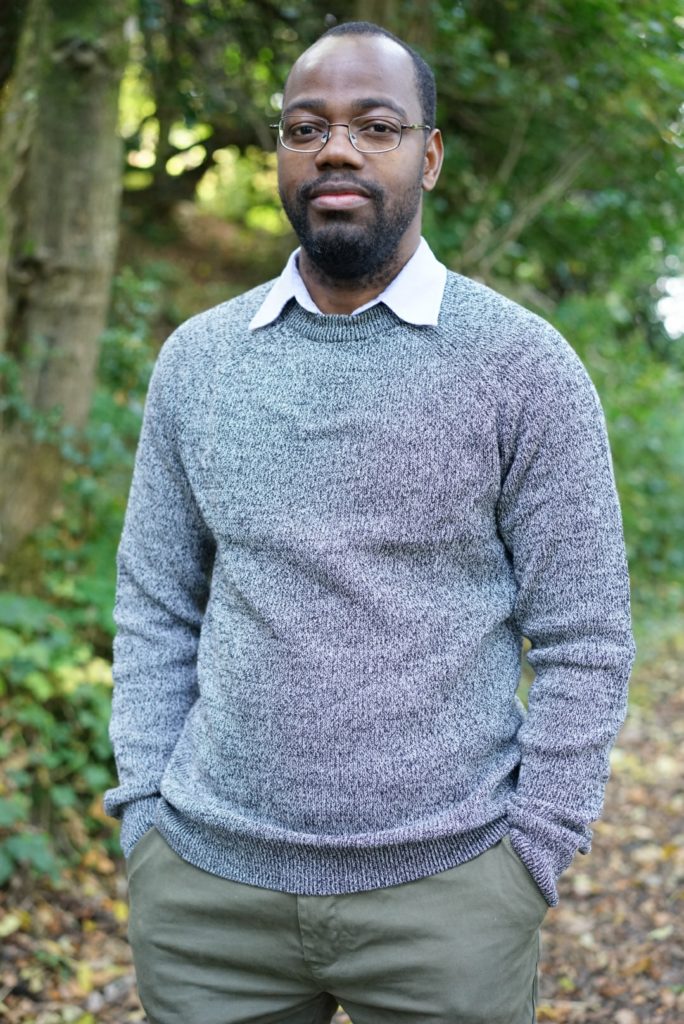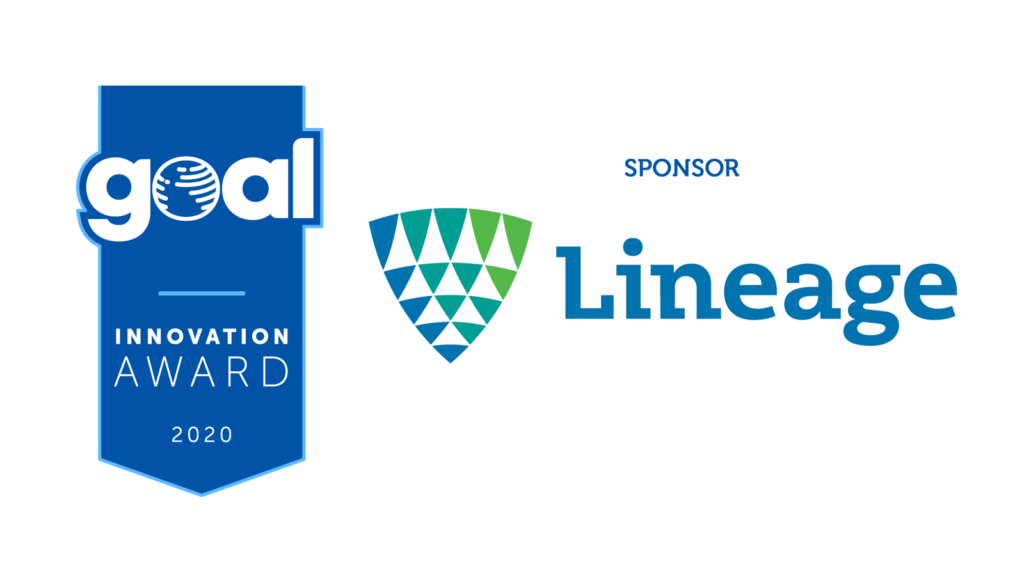Shrimp Eyestalk Ablation Researcher Wins 2020 Global Aquaculture Innovation Award
The results are in! Congratulations to University of Stirling postdoctoral researcher Simão Zacarias, the recipient of this year’s eighth annual Global Aquaculture Innovation Award, sponsored by Lineage Logistics, the Global Aquaculture Alliance announced on Oct. 19.
 Zacarias edged out two other finalists — Pablo Berner of Nuseed and Mark Luecke of Prairie AquaTech — to win the competition. All three finalists were featured in GAA’s Global Aquaculture Advocate in September and presented on Oct. 8 at GAA’s GOAL 2020 conference, held virtually for the first time ever this year. Of the 800 attendees who actively participated in GOAL 2020, about 200 voted.
Zacarias edged out two other finalists — Pablo Berner of Nuseed and Mark Luecke of Prairie AquaTech — to win the competition. All three finalists were featured in GAA’s Global Aquaculture Advocate in September and presented on Oct. 8 at GAA’s GOAL 2020 conference, held virtually for the first time ever this year. Of the 800 attendees who actively participated in GOAL 2020, about 200 voted.
Zacarias’ work zeroed in on the common — and, in animal-welfare circles, contentious — shrimp-hatchery practice of unilateral eyestalk ablation. His research debunked the notion that the practice results in higher egg production and showed that it actually escalates disease vulnerability. Zacarias proved in laboratory testing that postlarvae and juveniles from non-ablated Pacific white shrimp broodstock showed higher survival rates when they were challenged with two key diseases. He also proved that a similar egg production rate can be attained without resorting to eyestalk ablation by giving broodstock, in their pre-maturation stage, high quality, nutritious feed.
In addition to the University of Stirling, Zacarias’ work was supported by Benchmark Holdings, Labeyrie Fine Foods, Seajoy and SyAqua, among others.
“This year’s innovation award is a heartwarming example that breakthroughs can be driven by a single dedicated student enabled by the right collaborative opportunity. Our hats go off to Dr. Simão Zacharias for his life-changing decision to venture far from Mozambique and persevere in his goals, to Dr. David Little of University of Stirling who opened the doors and showed him the way, and to the commercial collaborators at Seajoy in Honduras and Benchmark in Thailand, who welcomed him to use their tools, and to Labeyrie Fine Foods, Seajoy, SyAqua and GAA who helped develop, fund and support the project,” said GAA President and Founder George Chamberlain, one of five judges for the competition.
“It is an honor to win this prestigious award, mainly as the first African to get it. This award reminds me to never give up in chasing my dreams even when they seem impossible,” said Zacharias. “I also think that this award is a direct message to the shrimp and aquaculture industry as a whole to keep adopting stronger animal welfare practices.”
Only nine votes separated Zacarias from the runner-up, Berner. Berner’s Nuseed uses genetic engineering to turn canola plants into prolific producers of omega-3 oils and other nutritionally important fatty acids. The California ag-tech company’s product is called Aquaterra®.
Luecke’s Prairie AquaTech produces ME-PRO®, a plant-based protein ingredient for aquaculture feeds manufactured in South Dakota that has two primary goals — sustainability and digestibility. ME-PRO is short for “microbially enhanced protein.”
 In 2012, GAA established the Global Aquaculture Innovation Award to recognize individuals and companies finding new solutions to the key challenges facing aquaculture. This year, GAA received a total of 30 applications from 17 countries — Belgium, Canada, Chile, Denmark, India, Indonesia, Israel, Malaysia, Mexico, the Netherlands, Norway, Panama, Spain, United Kingdom, United States, Tanzania and Thailand.
In 2012, GAA established the Global Aquaculture Innovation Award to recognize individuals and companies finding new solutions to the key challenges facing aquaculture. This year, GAA received a total of 30 applications from 17 countries — Belgium, Canada, Chile, Denmark, India, Indonesia, Israel, Malaysia, Mexico, the Netherlands, Norway, Panama, Spain, United Kingdom, United States, Tanzania and Thailand.
The competition is coordinated by GAA Standards Coordinator Dan Lee. In addition to Lee and Chamberlain, the judges are existing and former GAA Standards Oversight Committee members Alejandro Buschmann of i-mar Research and the Development Center of Coastal Resources and Environments; Dawn Purchase of the Marine Conservation Society; and Michael Tlusty of the University of Massachusetts-Boston. For the third consecutive year, the winner was selected by an audience vote.
Previous winners are:
2019: Mike Forbes, Ace Aquatec, Scotland
2018: Zach Stein, Osmo Systems, United States
2017: Walt Rakitsky, Corbion (formerly TerraVia), United States
2016: Karin Pittman, University of Bergen, Norway
2015: Werner Jost, Camanor Produtos Marinhos Ltda., Brazil
2014: Rodrigo Prado, USONIC Ltda., Chile
2013: Amir Sagi, Ben Gurion University, Israel
Examples of aquaculture innovations include technologies that mitigate the occurrence of animal diseases or parasites, or that reduce or eliminate the use of antibiotics to treat animals; technologies that improve production efficiencies at the hatchery or farm levels while mitigating environmental impact; advances in offshore or land-based recirculation technologies; novel feed ingredients; reductions in carbon footprint through improved energy efficiency or regeneration; and social programs designed to improve living and working conditions at the farm or processing levels.
Applications for the ninth annual Global Aquaculture Innovation Award will be accepted beginning in the spring. GAA’s GOAL 2021 conference is scheduled to be held in Tokyo, Japan, from Oct. 25 to 28.
About GAA
The Global Aquaculture Alliance is an international, nonprofit trade association dedicated to advancing environmentally and socially responsible aquaculture. Through the development of its Best Aquaculture Practices certification standards, GAA has become the leading standards-setting organization for aquaculture seafood.



